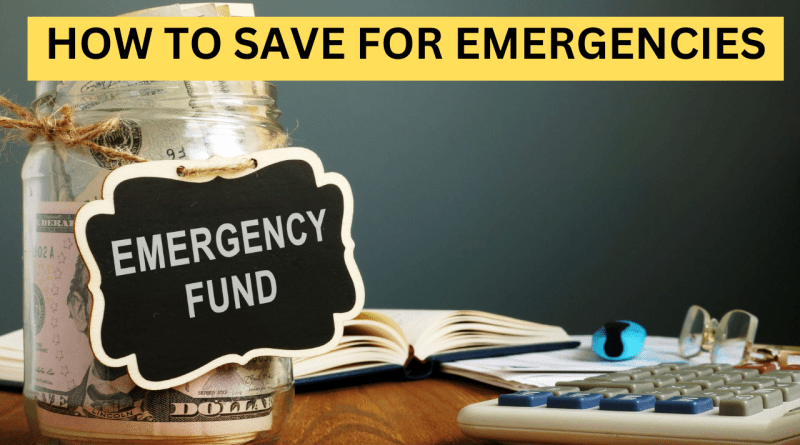Emergency Fund Tips: Complete Guide for Saving
Introduction:
“Emergency Fund Tips” is a highly sought-after topic, and rightly so. Life can throw unexpected curveballs at us when we least expect them, and having a robust emergency fund in place can make all the difference. In this article, we’ll provide you with a comprehensive guide on how to build and maintain your emergency fund, ensuring that you’re financially resilient and well-prepared for any unforeseen circumstances. We’ll also address the top five frequently asked questions about emergency funds.
What is the Purpose of an Emergency Fund?
The primary purpose of an emergency fund is to provide a financial cushion in times of unexpected crises. It safeguards you from going into debt when faced with urgent expenses, such as medical bills, car repairs, or unexpected job loss. Here’s how you can build and maintain an effective emergency fund:
How to build emergency fund?
Step 1: Determine Your Emergency Fund Goal
- How Much Should I Save in My Emergency Fund?
- Your goal depends on various factors, including your monthly expenses, job stability, and personal circumstances. A common guideline is to save at least three to six months’ worth of living expenses.
- What If My Financial Situation Is Uncertain?
- In this case, aim for a more extended safety net. Consider saving up to 12 months’ worth of expenses to ensure you’re well-prepared for any scenario.
Step 2: Create a Budget
- How Do I Create a Budget for My Emergency Fund?
- Start by listing all your monthly expenses, including essential bills like rent, utilities, and groceries. Be sure to account for discretionary spending as well.
- What’s the Easiest Way to Allocate Money for My Emergency Fund?
- Decide on a specific percentage of your income that you can comfortably allocate to your emergency fund. This creates a clear savings plan within your budget.
- What If My Budget Is Already Tight?
- Carefully examine your monthly expenses to identify areas where you can cut back. Redistributing these funds to your emergency fund can be incredibly beneficial.
Step 3: Finding Additional Income
- Are There Simple Ways to Boost My Income for My Emergency Fund?
- Consider part-time jobs, gig work, or selling items you no longer need to generate extra income. Every little bit helps.
- Where Can I Find Freelance or Side Jobs for Extra Cash?
- Explore online platforms like Upwork or Fiverr, where you can offer your skills and services to earn additional income.
Step 4: Where to Keep Your Emergency Fund
- What’s the Safest Place to Keep My Emergency Fund?
- Choose a high-yield savings account, a money market account, or a short-term certificate of deposit (CD) to ensure that your funds are both accessible and growing.
Step 5: Building Your Fund Gradually
- How Can I Stay Consistent with My Emergency Fund Contributions?
- Set up automatic transfers from your checking account to your savings account, making saving a regular habit that you don’t need to think about.
- What Should I Do with Unexpected Windfalls or Bonuses?
- Consider allocating a portion of unexpected windfalls, like tax refunds or work bonuses, to your emergency fund to give it a boost.
Step 6: When to Use Your Emergency Fund
- When Is It Appropriate to Use My Emergency Fund?
- Your emergency fund is meant for genuine emergencies, such as medical expenses, necessary car repairs, or unexpected job loss. Avoid using it for non-urgent expenses.
Step 7: Replenishing Your Fund
- How Can I Replenish My Emergency Fund After Using It?
- As soon as you use your emergency fund, prioritize replenishing it. Resume your regular contributions, adjust your budget, and utilize any windfalls or extra income to rebuild your safety net.
FAQ: Can I Use My Emergency Fund for Non-Emergencies?
No, it’s essential to use your emergency fund solely for genuine emergencies. Avoid using it for non-urgent expenses like vacations or shopping sprees. Instead, consider creating a separate savings account for these purposes, preserving the integrity of your emergency fund.
In Conclusion
Building and maintaining an emergency fund is a fundamental step in securing your financial future. It provides a financial safety net, offering you peace of mind and the ability to handle unexpected expenses without accumulating debt. Remember, financial peace of mind is invaluable. Start small, create a budget, and commit to consistent savings. With time and determination, you can build a substantial emergency fund that will be there for you when you need it most.



